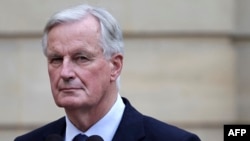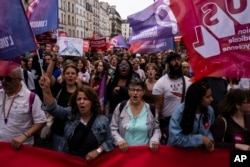The French presidential palace unveiled a new center-right government Saturday, more than two months after elections that produced a hung parliament and deepened political divisions as France grapples with economic and diplomatic challenges.
Conservative French Prime Minister Michel Barnier put together the government after weeks of difficult negotiations, and President Emmanuel Macron approved it. The new government was announced at the presidential palace.
A left-wing coalition secured the most seats in June-July elections but failed to win an outright majority. The 38-member Cabinet announced Saturday includes primarily ministers from Macron's centrist alliance and the conservative Republicans party.
Jean-Noel Barrot is the new foreign minister, a centrist politician from MoDem known for his work in digital transformation and European affairs. He brings extensive experience in navigating complex international issues, notably within the European Union.
The new finance minister is Antoine Armand, an emerging figure in French politics now tasked with steering France's fiscal policies and managing the upcoming 2025 budget amid pressure from Brussels to address France's mounting debt.
Sebastien Lecornu retains his post as defense minister. He has been instrumental in bolstering France's military capabilities, including modernizing defense systems and managing military aid to Ukraine. His leadership in defense will be crucial as France navigates its role within NATO and handles rising geopolitical tensions over the wars in Ukraine and the Mideast.
The interior minister’s job goes to Bruno Retailleau, a staunch conservative who will now handle critical domestic issues such as national security, immigration, and law enforcement.
Barnier's ability to govern effectively is under scrutiny, with his political opponents on the left vowing to challenge him at every turn. The party of far-left Jean-Luc Melenchon, France Unbowed, held protests Saturday against his government and calls Barnier's appointment a rejection of the voters' will.
Marine Le Pen's far-right National Rally said it would monitor the government closely and has enough votes in parliament to bring it down but expressed willingness to cooperate on key budgetary issues.





